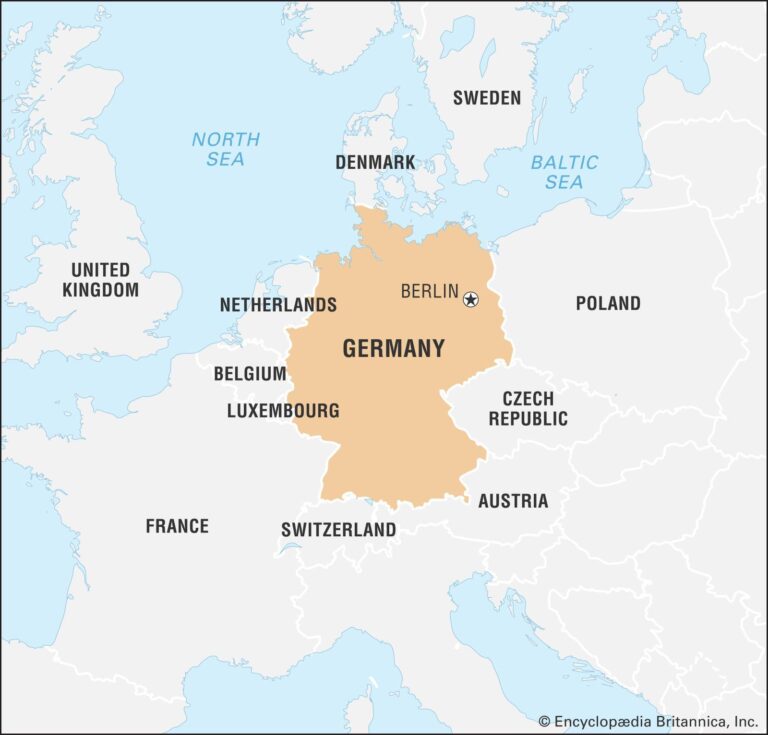Germany is confronting growing concerns of a potential recession as its economy showed no growth in the third quarter, according to recent data reported by Xinhua. The stagnation in GDP highlights mounting challenges facing Europe’s largest economy amid persistent inflation, energy uncertainties, and weakening global demand. Analysts warn that without swift policy interventions, Germany’s economic outlook could further deteriorate, raising alarms for both domestic markets and the broader eurozone.
Germany Economic Growth Halts in Third Quarter Raising Recession Concerns
Germany’s economic momentum came to an unexpected standstill in the third quarter, with GDP figures revealing zero growth. This stagnation has intensified fears that Europe’s largest economy could be edging closer to a recession after a fragile recovery earlier in the year. Key sectors such as manufacturing and exports showed signs of weakening demand, weighed down by ongoing global supply chain disruptions and geopolitical tensions affecting trade routes. Analysts warn that without a swift policy response, the sluggish growth could dampen investor confidence and lead to increased unemployment rates in the coming months.
Several underlying factors contributed to the flat performance, including:
- Industrial output decline: Down by 2.1% from Q2
- Consumer spending stagnation: Minimal growth despite easing inflation
- Export volume drop: Particularly in automotive and machinery sectors
The government is now under pressure to stimulate domestic demand and implement measures that can revitalize industrial activity. Below is a comparative outline of Germany’s GDP growth trends over the last four quarters:
| Quarter | GDP Growth (%) |
|---|---|
| Q4 2022 | 0.4 |
| Q1 2023 | 0.7 |
| Q2 2023 | 0.3 |
| Q3 2023 | 0.0 |
Industrial Output and Consumer Spending Weigh on GDP Performance
Germany’s economic momentum has sputtered, largely driven by a notable slowdown in both industrial output and consumer spending. Key manufacturing sectors, particularly automotive and machinery, reported declining production levels amid persistent supply chain disruptions and energy cost pressures. The contraction in factory output has translated into weaker export volumes, further dampening growth prospects for Europe’s largest economy.
On the consumer front, households have tightened their belts as inflationary pressures erode purchasing power. Rising costs of essentials have shifted spending away from discretionary items, limiting overall demand. Key factors influencing this trend include:
- Energy prices remaining at elevated levels, curbing disposable income.
- Heightened uncertainty over global economic stability, encouraging savings over spending.
- Increased borrowing costs impacting consumer credit availability.
| Sector | Q3 Output Change | Consumer Spending Change |
|---|---|---|
| Manufacturing | -2.3% | – |
| Retail Sales | – | -1.8% |
| Energy | +0.5% | – |
Policy Measures Urged to Stimulate Investment and Restore Market Confidence
The German government and economic experts are calling for a series of decisive policy actions to counteract the stalling GDP growth and rekindle investor trust. Key among the recommended measures are sustained fiscal stimulus packages targeting infrastructure and green technology investments, alongside regulatory reforms designed to expedite business operations and reduce bureaucratic delays. These efforts aim to create a conducive environment for private sector expansion and attract capital inflows amid ongoing global uncertainties.
Urgent strategies emphasized include:
- Enhanced tax incentives for research and development to drive innovation
- Streamlined approval processes for construction and industrial projects
- Increased federal funding for digital infrastructure upgrades
- Support programs for small and medium-sized enterprises to improve liquidity
| Policy Focus | Expected Outcome |
|---|---|
| Infrastructure Investment | Job Creation and Economic Stimulus |
| Digital Transformation | Improved Competitiveness |
| SME Liquidity Support | Business Stability |
Concluding Remarks
As Germany grapples with stagnating economic growth in the third quarter, concerns over a potential recession are mounting among policymakers and market watchers alike. With Europe’s largest economy showing signs of vulnerability amid global uncertainties, close attention will be paid to upcoming data and government responses in the months ahead. The unfolding situation underscores the challenges facing not only Germany but also the broader European economic landscape.




